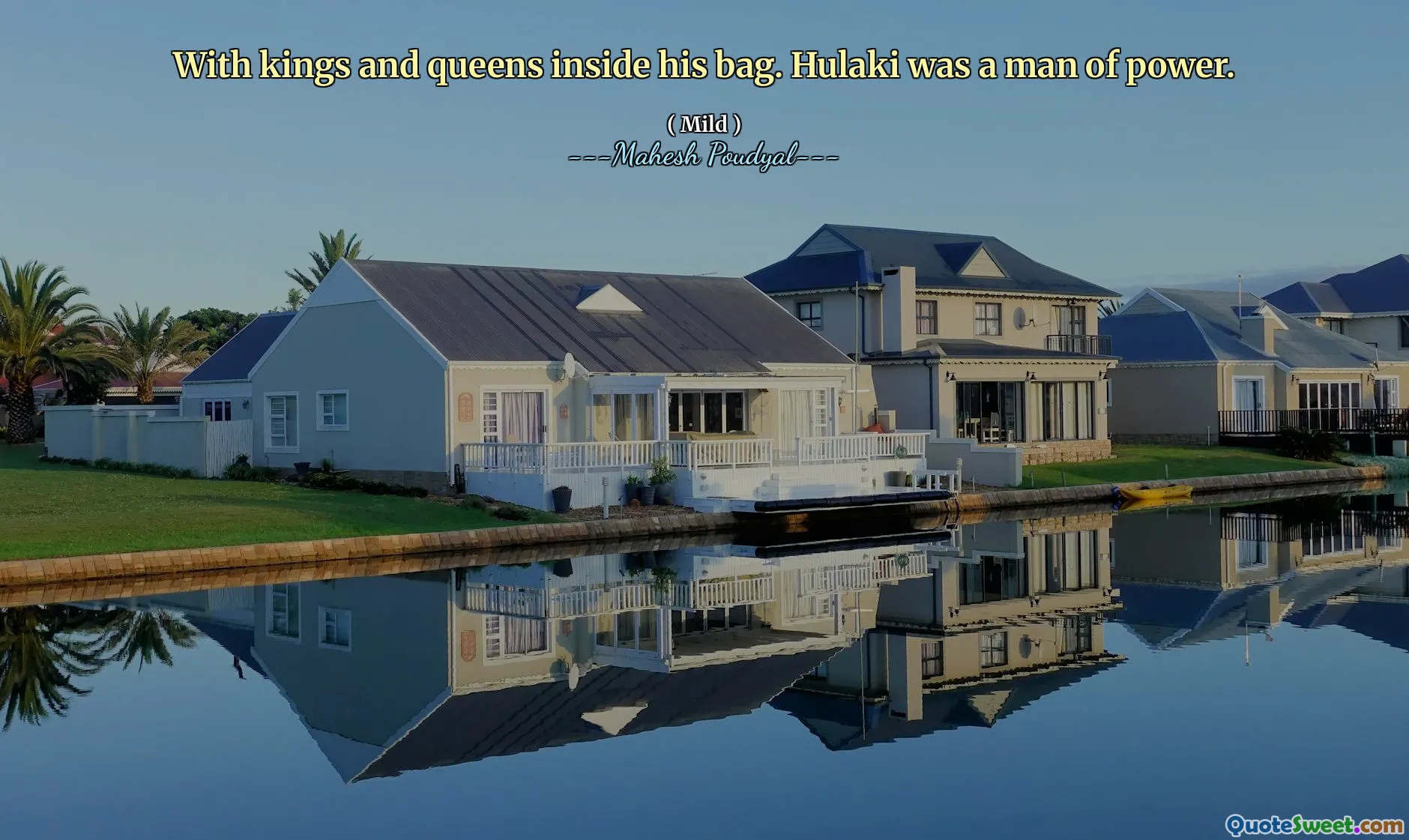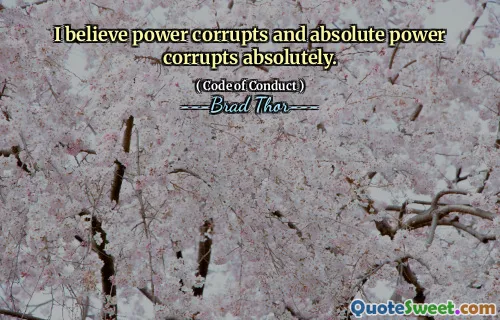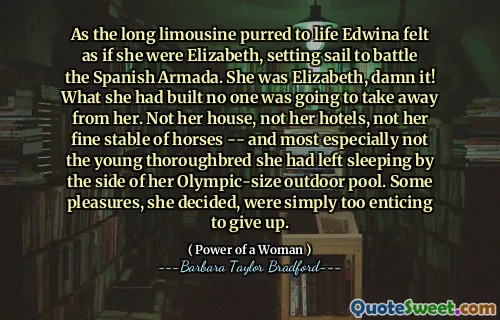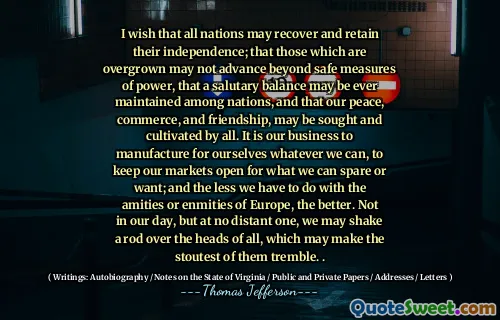
With kings and queens inside his bag. Hulaki was a man of power.
The quote presents a vivid metaphor of a person carrying kings and queens within his bag, symbolizing immense influence or control over powerful entities. This imagery evokes the idea that true power is often hidden or resides within an individual rather than being overtly displayed. It suggests that authority and status are not solely dependent on external appearances or titles but can exist secretly within a person’s inner strength or strategic positioning.
The character Hulaki, described as a man of power, embodies the notion that influence can be accumulated quietly and subtly. In a broader context, this may reflect the nature of leadership, where those who wield significant control understand the importance of discretion, patience, and resourcefulness. Hiding kings and queens, symbolic of ruling monarchs, indicates a mastery over complex political or social dynamics where overt displays of power might be risky or ineffective.
This metaphor resonates deeply with themes of inner strength versus outward appearance. It invites us to consider how true authority might not always be apparent at surface level but rather, embedded within one's capabilities, relationships, or strategic influence. In a societal sense, it hints at the idea that power often operates behind the scenes, in shadows and subtle maneuvers, rather than in open confrontation.
The quote also evokes thoughts on leadership qualities, the underestimated, and the importance of discretion. Hulaki, as a person who holds kings and queens within his bag, may represent a figure of strategic importance—possibly a mediator, a manipulator, or a thinker who understands the game better than most. This perspective challenges the typical image of power being loud or ostentatious and instead celebrates quiet influence and the art of subtle command.






